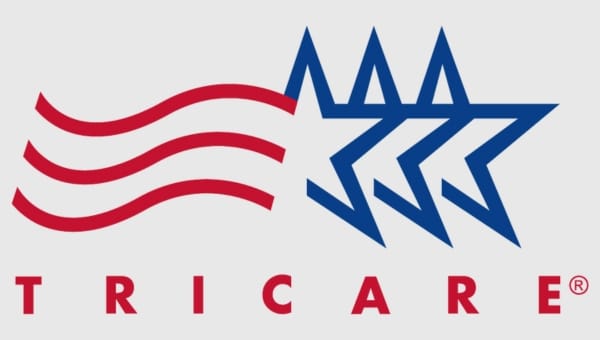Personality disorders are long-term patterns of thoughts, emotions, and behaviors that differ significantly from what’s considered normal. These patterns cause distress and make it hard to handle relationships, work, or daily life. Unlike temporary mood swings, personality disorders are stable over time and often start in the teen years or early adulthood. The treatment of personality disorders typically involves long-term mental health care, including talking therapy such as supportive psychotherapy and cognitive-behavioral approaches. Although personality disorders are considered chronic, with persistent and sometimes severe symptoms, therapeutic support can help individuals develop healthier coping mechanisms, improve interpersonal skills, and foster greater emotional resilience.
Mental health treatment centers are a great place for those in Las Vegas suffering from a personality disorder to find hope and healing. Vogue Recovery offers personality disorder treatment plans at our Las Vegas facility that can turn things around. Treatment for personality disorders can help improve someone’s life and guide them to a brighter future free from mental health disorder symptoms. Reach out for help and get started on your path to recovery.
What Are Personality Disorders?
Personality disorders are complex mental health conditions that affect the way individuals think, feel, and behave, often making it difficult to relate to others and manage everyday challenges. Unlike temporary emotional struggles, personality disorders involve deeply ingrained patterns that typically begin in adolescence or early adulthood and persist over time. These patterns can lead to significant distress and problems in relationships, work, and self-image.
There are 10 types of personality disorders grouped into three clusters:
- Cluster A (Odd/Eccentric): Includes paranoid, schizoid, and schizotypal disorders. People may seem distrustful, emotionally detached, or have unusual beliefs or erratic patterns of thinking.
- Cluster B (Dramatic/Erratic): Includes antisocial, borderline, histrionic, and narcissistic disorders. These involve intense emotions, impulsivity, and difficulty with relationships.
- Cluster C (Anxious/Fearful): Includes avoidant, dependent, and obsessive-compulsive personality disorders. These involve extreme shyness, fear of abandonment, or perfectionism.
Symptoms of personality disorders vary but often include mood swings, trust issues, reckless actions, or trouble understanding others’ feelings. Treatment from a Las Vegas mental health professional focuses on therapy (like cognitive behavioral therapy) and sometimes medication.
Personality Disorder Risk Factors
While the exact cause of personality disorders is unclear, several factors increase the risk:
- Genetics: Family history of personality disorders or other mental health conditions.
- Childhood trauma: Abuse, neglect, or unstable home environments.
- Brain changes: Differences in brain structure or chemistry affecting emotions and impulses.
- Verbal abuse: Harsh criticism or emotional invalidation during childhood.
- Substance use: Early or prolonged drug/alcohol misuse.
- Cultural factors: Societal expectations or lack of community support.
Early intervention with therapy can help manage symptoms and improve relationships.
How Are Personality Disorders Diagnosed?
Personality disorders are diagnosed through comprehensive evaluations by mental health professionals, including clinical interviews, mental health questionnaires, and discussions of thoughts, behaviors, and relationships. The DSM-5-TR criteria require persistent, inflexible patterns in cognition, emotions, interpersonal functioning, or impulse control that cause significant distress or impairment. Symptoms must be stable over time (often starting in teens or early adulthood) and not caused by substance use or other medical conditions. Tools like the PCL-5 or neuropsychological testing may clarify diagnoses, especially for overlapping conditions like PTSD, depression, or anxiety. Family input can provide additional context.
Personality disorders are not the same as conditions such as conduct disorder, gender dysphoria, Alzheimer’s disease, or intellectual disability, though they may share overlapping symptoms or co-occur. Each specific personality disorder has distinct features and diagnostic profiles, and understanding these differences is essential in creating effective treatment plans for those with a personality disorder in Las Vegas, NV.
The DSM-IV also laid the foundation for earlier diagnosis and classification of personality disorders, which continues to evolve as research advances. Raising awareness about personality disorders and improving access to care are key steps in supporting people with personality disorders and helping them lead more stable and fulfilling lives.
Types of Personality Disorders
Personality disorders are grouped into three clusters based on shared symptoms, each affecting thoughts, emotions, and relationships differently.
Cluster A (Odd/Eccentric):
- Paranoid Personality Disorder (PPD): Extreme distrust of others, assuming harm without evidence.
- Schizotypal Personality Disorder (STPD): Unusual beliefs, magical thinking, and social discomfort.
- Schizoid Personality Disorder (ScPD): Emotional detachment, preferring solitude over relationships.
Cluster B (Dramatic/Erratic):
- Antisocial Personality Disorder (ASPD): Disregard for others’ rights, impulsivity, and lack of remorse.
- Borderline Personality Disorder (BPD): Intense mood swings, fear of abandonment, and unstable relationships.
- Histrionic Personality Disorder (HPD): Excessive emotionality and attention-seeking behavior.
- Narcissistic Personality Disorder (NPD): Grandiosity, need for admiration, and lack of empathy.
Cluster C (Anxious/Fearful):
- Avoidant Personality Disorder (AvPD): Social inhibition due to fear of rejection.
- Dependent Personality Disorder (DPD): Over-reliance on others for decision-making.
- Obsessive-Compulsive Personality Disorder (OCPD): Rigid perfectionism and control over tasks.
Treatment for personality disorders in Las Vegas, NV, often involves therapy (e.g., cognitive behavioral therapy) to manage symptoms.
Treatment for Personality Disorders
Treatment for personality disorders focuses on psychotherapy to address long-term patterns of thoughts, emotions, and behaviors. While no medications directly treat personality disorders, doctors may prescribe antidepressants, antipsychotics, or mood stabilizers to manage co-occurring symptoms like depression or anxiety. Therapy helps individuals improve relationships, regulate emotions, and develop healthier coping strategies. A Las Vegas personality disorder therapist may use alternative treatments as well, depending on their expertise and the needs of each client.
Therapy for Personality Disorder
Psychotherapy is the primary treatment for personality disorders, helping individuals understand and change harmful thought patterns, improve relationships, and develop healthier coping strategies. Primary therapy formats are:
- Cognitive-behavioral therapy (CBT): Challenges distorted beliefs (e.g., “I’m unlovable”) and teaches problem-solving skills to reduce harmful behaviors.
- Dialectical behavioral therapy (DBT): Combines mindfulness and emotion regulation to help with borderline personality disorder, reducing self-harm and impulsivity.
Medication for Personality Disorders
While no medications directly treat personality disorders, doctors may prescribe drugs like antidepressants or mood stabilizers to manage co-occurring symptoms such as depression, anxiety, or mood swings. Some common medications used to treat personality disorders include:
- Antidepressants (e.g., SSRIs): Manage depression, anxiety, or mood swings linked to disorders like avoidant or obsessive-compulsive personality disorder.
- Antipsychotics (e.g., quetiapine): Address paranoia, aggression, or distorted thinking in schizotypal or paranoid personality disorder.
- Mood stabilizers (e.g., lithium): Help control impulsivity and emotional outbursts, particularly in borderline personality disorder.
- Anxiolytics (e.g., benzodiazepines): Rarely used due to addiction risks but may provide short-term relief for severe anxiety.
Therapy remains the cornerstone of treatment, with medications as supportive tools for mental disorder symptom management.
Treatment for Personality Disorders at Vogue Recovery Center
Vogue Recovery Center provides personalized mental health treatment for personality disorders, combining evidence-based therapies like cognitive-behavioral therapy (CBT) and dialectical behavioral therapy (DBT) with holistic approaches such as yoga and art therapy. Our programs address conditions like borderline personality disorder (BPD) and avoidant personality disorder, focusing on emotional regulation, relationship skills, and symptom management. For co-occurring issues like substance use disorder or depression, we offer integrated care with medication management and group therapy.
Clients at Las Vegas treatment centers engage in individual and group psychotherapy, mindfulness practices, and experiential therapies tailored to their needs. Specialized programs for BPD include DBT to reduce self-harm and improve distress tolerance, while CBT helps reframe negative thought patterns. Our trauma-informed care ensures a safe environment for processing past experiences.
Help for Personality Disorders Near You
Vogue offers personality disorder treatment at our Las Vegas, NV mental health facility, providing accessible care through intensive outpatient programs (IOP) and residential services. Their mental health professionals create personalized treatment plans that may include medication for co-occurring anxiety or mood stabilizers for emotional instability.
Local mental health services emphasize support groups, life skills training, and family counseling to strengthen relationships and daily functioning. For immediate help, contact our team to find treatment near you and begin a mental illness recovery plan tailored to your goals. Help is available – your mental health matters.
- Personality Disorders – NIMH
- Different types of personality disorders – Medical News Today
- Personality Disorder – NIH [StatPearls]
- Personality Disorders – Johns Hopkins Medicine
- DSM-5 Personality Traits and DSM-IV Personality Disorders – PubMed
- Can the PCL-5 be used as a potential indicator of probable Complex PTSD? – Science Direct
- Cluster A personality disorders – APA PsycNet
- Cluster B Personality Disorder – Science Direct
- Personality disorders – Mayo Clinic
- Cluster C personality disorders: Avoidant, dependent, and obsessive-compulsive – APA PsycNet
- Psychotherapy of Personality Disorders- PubMed
- Drug treatment for personality disorders – Cambridge University Press















